|
Plenary Keynote Addresses
(Ordered alphabetically by title. Dates and times will be announced soon.)
AI and Academic Globalization of Higher Education: Both Promise and Perils  Dr. James Lipuma, USA New Jersey Institute of Technology, Director of the Collaborative for Leadership Education, and Assessment Research.
Dr. James Lipuma is a faculty member in the Humanities Department at the New Jersey Institute of Technology (NJIT) and Director of the Collaborative for Leadership, Education, and Assessment Research (CLEAR).
He holds a B.S. in Chemical Engineering from Stanford University, an M.Ed. in Curriculum and Teaching focusing on Science Education from Teachers College, Columbia University, an M.S. in Environmental Policy Studies, and a Ph.D. in Environmental Science from NJIT. His research extensively covers digital learning, curriculum, and instructional design, and he is currently piloting online converged course delivery methods.
As director, Dr. Lipuma has led curriculum development, assessment design, program evaluation, and program development projects for public schools, universities, the New Jersey Department of Education, the U.S. Department of Education, and the National Science Foundation. He has taught over 5,000 students across over 200 courses during his 25 years at NJIT. He has contributed to nearly $6 million in grant-funded projects, including over $2.5 million as Principal Investigator (PI) or Co-Principal Investigator (Co-PI), and has secured more than $250,000 in donations.
Legally blind since the age of nine, Dr. Lipuma deeply understands the necessity of positive change. He actively promotes broader participation for women and underrepresented minorities in Science, Technology, Engineering, and Mathematics (STEM) through STEMforsuccess.org and other STEM literacy projects he leads.
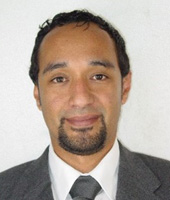 Dr. Cristo Leon, USA New Jersey Institute of Technology, Director of Research, HCSLA, Office of Research & Development.
Dr. Cristo Leon is a Director of Research for the Jordan Hu College of Science and Liberal Arts at the New Jersey Institute of Technology (NJIT). In this capacity, he oversees the management and logistics of research programs, coordinates pre- and post-award activities for over 100 active grants, facilitates the annual submission of more than 200 research proposals, and serves as a liaison between NJIT’s Office of Research, the College Dean, six academic departments, and over 110 faculty Principal Investigators.
Since joining NJIT in 2015, Dr. León has assisted in submitting over 2,000 grant proposals, resulting in more than 400 new awards. His extensive experience includes managing over 83 active grants with a combined projected budget exceeding $33 million for the fiscal year 2025. He has successfully managed complex projects, ensuring compliance, handling subcontract documentation, and fostering collaborative efforts with federal, state, and private entities, particularly for initiatives exceeding $1 million in funding.
Dr. León is deeply committed to promoting Diversity, Equity, and Inclusion (DEI), actively supporting strategic programs that benefit Hispanic and Latinx students in alignment with NJIT's designations as a Hispanic-Serving Institution (HSI) and an Asian American and Native American Pacific Islander-Serving Institution (AANAPISI). As a founding member of NJIT’s Hispanic and Latinx Employee Resource Group (ERG), he advocates for professional development, cultural awareness, networking opportunities, and a supportive community environment. His work advances academic innovation and inclusivity through strategic research initiatives, mentorship, and community engagement, empowering individuals and driving institutional transformation that positively impacts society.
Dr. León earned his Master’s in Business Administration in 2015, graduating Summa Cum Laude, and was subsequently recognized as "Generation Leader EXATEC 2021" by ITESM. In 2024, he completed his Ph.D. in Organizational Management and Institutional Innovation, graduating Magna Cum Laude. Dr. León also received an honorary Doctorate (Doctor Honoris Causa) for pioneering a research initiative that facilitated preserving and translating indigenous texts into Nahuatl, demonstrating visionary leadership, impactful community engagement, and effective collaboration between academia and rural communities. His primary research interests encompass Social Sciences, specifically in Business Development, Cultural and Social Structures, Business Innovation, Digital Marketing, Strategic Planning, Data Management, and Open Science Practices; Other Sciences, particularly in Tabletop Role-playing Games (TTRPGs) and Game Studies; and Education, covering Business and Management, Communication, Humanities, with emphasis on Trans-disciplinary and Interdisciplinary Communication and Research, Educational Innovation, STEM Education, Diversity, Equity, and Inclusion (DEI), and Digital and Hybrid Learning Environments.
Abstract
Higher education in the United States of America is confronted with the rapidly changing systems due to the power of the disruptive innovation of AI. As the workforce rapidly adopts Ai-tools, often without fully understanding them, institutions of higher education must adapt while holding to the high academic standards required as part of their integrity, core value, and regulatory requirement for accreditation. The keynote will discuss the promise AI-tools offer for true globalization of access to knowledge and its transformative power for the system to reach new heights of intercultural and trans-disciplinary communication and collaboration at all levels. However, this same potential brings with it the perils of advocating intellectual effort and normalizing a sometimes bias and often incomplete engagement with concepts and topics from around the globe brought to the commons for research and debate. The keynote will close with a examination of the need for 'humans in the loop" and a new ethical trans-disciplinary and intercultural awareness for our students and across the broader society.
AI-Driven Grading and/or Moderation for Collaborative Projects in Education in General 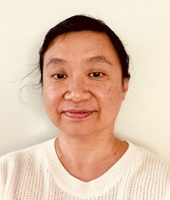 Dr. Songmei Yu, USA Felician University, School of Business and Information Sciences.
Dr. Yu obtained Ph.D. in Information Technology from Rutgers University in 2006 and joined Felician University in 2008, where she has been working since then and is currently a Full Professor in Computer Science. She is a passionate educator and committed researcher. Her research interests include AI application in higher education, Web mining dedicated to Web community search and discovery, efficiency and effectiveness of distance learning, and data warehouse and data modeling. She has published papers in these areas and has served as Co-PI in grants from NSF and DoE recently.
Her research interests include Web Mining dedicated to Web Community Search and Discovery, Efficiency and Effectiveness of Distance Learning, and Data Warehouse and Data Modeling. Her teaching interests include Database Systems, Data Warehouse and Data Mining, Programming Courses, Game Development, Web Scripting and Development.
Abstract
We are entering an era where education and technology interact in ways that can transform not only how we teach, but how we understand learning itself. Collaborative projects are the heartbeat of modern education—spaces where students practice the very skills the future demands: teamwork, creativity, adaptability, and shared responsibility. Yet for too long, our methods of assessment have struggled to honor the full richness of these experiences. A single grade rarely captures the quiet persistence of a problem-solver, the spark of an innovator, or the steady presence of a collaborator who lifts the whole group.
Artificial intelligence offers us a new vision. With thoughtful design, AI can illuminate contributions often unseen, balance fairness with insight, and free educators from administrative weight. It can help transform grading from a narrow judgment into a living reflection of growth, equity, and collaboration.
But let us be clear: AI is not here to replace it is here to extend our reach, to amplify our humanity as educators. If we embrace this wisely, we can turn assessment into inspiration and help our students see collaboration not just as a task, but as the very foundation of their future.
Artificial Intelligence for Drone Swarms 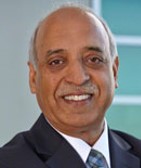 Professor Mohammad Ilyas, USA Florida Atlantic University, College of Engineering & Computer Science.
Dr. Mohammad Ilyas is a Professor in the College of Engineering and Computer Science at Florida Atlantic University, Boca Raton, Florida. He has been with the College since 1983 and has served in several key leadership positions for more than 20 years. He has earned four academic degrees from four different countries. He received his B.Sc. degree in Electrical Engineering from the University of Engineering and Technology, Lahore, Pakistan, in 1976, his M.S. degree in Electrical and Electronic Engineering, in 1980 from Shiraz University, Shiraz, Iran, his Ph.D. degree Electrical Engineering in 1983, from Queen’s University, Kingston, Ontario, Canada, and another Ph.D. degree in Educational Leadership – Higher Education, in 2015, from Florida Atlantic University, Boca Raton, Florida.
Dr. Ilyas has conducted successful research in the field of computer communication networks. His current research interests include wireless sensor networks, Internet of Things, artificial intelligence, smart systems, healthcare technologies, and impact of globalization on higher education. He has published one book, 26 handbooks, and over 260 research articles. He has supervised 18 Ph.D. dissertations and 38 M.S. theses to completion. He is currently supervising a group of 6 doctoral students. He has been a consultant to several national and international organizations. He is an active participant in several IEEE Technical committees and activities.
Dr. Ilyas is a Life Senior Member of IEEE, Fellow of IIIS, and was listed as a Fulbright Specialist from June 2017 to June 2022.
Abstract
Drone swarms are groups of unmanned aerial vehicles (UAVs) that operate in a coordinated manner to complete their assigned tasks. The coordination logistics are inspired by biological collectives such as flocks of birds or swarms of insects. Unlike individual drones, swarms leverage numbers and coordination to accomplish complex tasks more efficiently, robustly, and with greater adaptability. AI plays a pivotal role in elevating drone swarms from mere programmed machines to intelligent agents capable of self-organization, decision-making, and rapid response to dynamic environments. AI enables swarms to operate with minimal human intervention and adapt to changing scenarios in real time. This presentation will focus on the applications of artificial intelligence in making the operations of drone swarms as efficient and as smooth as possible.
Brains, Minds, and Science: Digging Deeper  Dr. Maurício Vieira Kritz, UK/Brazil University of Manchester, Faculty of Biology, Medicine, and Health / PPGDC Network: Knowledge Diffusion Multi-institutional, Multi-disciplinary Graduate Program.
Dr. Maurício Vieira Kritz affirms that affirms that "I have been attracted to science while still in high-school. Ever since, I considered specialisation harmful to our knowing and to humankind’s interests. I entered college aiming at physics, blended into mathematics, and graduated with mayors in mathematical-physics and informatics. While working at the Brazilian Bureau of Censuses, I got a M.Sc in statistics and sampling, disciplines I missed in my background. My work at the Bureau also included the development of computer simulators for socio-economic phenomena. Adhering to general systems framework as a firm ground for my thinking was quite natural in that context. During this time, I co-authored a document that became the founding stone of the Brazilian National Laboratory for Scientific Computing years later. My PhD work addressed computational modelling of physical phenomena, although this term didn’t exist yet. Just after obtaining my PhD, I became the leader in a project that aimed to computationally model artificial lakes in the Amazon region. This task had launched me into an adventurous quest to find simpler ways to describe, investigate, and understand ecological and living phenomena. This quest, centred since its onset on organisation and information ideas, still fuel my thoughts today. Decades after the Amazon project, I became co-PI to the flooded areas group in a multi-institutional network set up to model the Amazon landscape in all its dimensions: geo-physical, biotic, socio-economic, and human. Both projects provided me with the opportunity to visit scientific field sites in the jungle and to work with field ecologists. I have taught short and regular courses since graduating on several subjects, and regularly on modelling techniques—a central perspective in my scientific thinking—since 2008. My present research focus in the scientific milieu itself and in how its biological nature affect scientific creativity, particularly in multi-disciplinary research."
Abstract
I have previously proposed the scientific milieu itself as a primary subject of scientific study, to understand our difficulties and inefficiencies while trying to address nowadays challenges with the scientific method. Due to its intellectual characteristics and controlled social nature, the organisation’s perspective allows us to consider the scientific milieu as a social model for the whole humanity, in the same sense of biological models. Special attention needs to be paid to the position and role of human brain-mind complex in the process of producing knowledge, to comprehend how its biological characteristics affect creativity. With this aim, I started to introduce, in my regular talk, an idealised model of the brain-mind complex that supports deeper discussions about how it affects creation of new concepts, particularly in collective creativeness. The present talk further elaborates this model by improving the descriptions of the brain and mind idealisations and their coupling, the listing of JG Miller life-characterising functions, and by further discussing the role of internal and external communication in this partial picture of the scientific milieu.
Does AI Represent Authentic Intelligence, or an Artificial Identity?  Dr. Jeremy Horne, Mexico/USA Newlane University / President-Emeritus of the Southwest Area Division of the American Association for the Advancement of Science: AAAS.
Dr. Jeremy Horne concentrated in logic, social/political philosophy, philosophy of education, and the history of philosophy for his Ph.D. in philosophy from the University of Florida. His ongoing research interests are in the philosophy of organicity, recursion in three-dimensional binary space, autonomous hybrid systems, the ontology of number and time, and states of life and consciousness. Present work is researching the Voris methodology underpinning the Authentic Systems’ personal identity location and description as an aspect of consciousness.
Dr. Horne taught many courses in philosophy (including his specialty logic), political science, and technology, having delivered many presentations on the philosophy of scientific methods for the American Association for the Advancement of Science (AAAS), the IIIS, and quantum mind conferences. With several others (1991), he helped lay the foundation for the current The Science of Consciousness (TSC) conferences, the largest of its kind in the world. He has been a peer reviewer for various journals about the structure and process in binary space, consciousness studies, systems theory, and philosophy of science. In applying the theoretical to the practical, he was the CEO of the Inventor’s Assistance League. For "bread and butter" work, he was a documentation systems developer for the White Sands Missile Range in New Mexico, a culmination of some twenty years' work in the field of technical presentation. His recent publications include a book Philosophical Perceptions on Logic and Order, chapters of several books released by IGI Global Press, a "kernel" chapter, "Philosophical foundations of the Death and Anti-Death discussion", and 2023 book, Managing Complexity Through Social Intelligence: Foundations of the Modern Organic Corporatist State. Others appear under ORCID ID: 0000-0002-9179-0815 and https://philpeople.org/, under "Jeremy Horne".
Abstract
This presentation examines the problem of authentic human identity in relation to the development of artificial intelligence (AI). It challenges the widespread assumption that replicating human intelligence through AI necessarily entails replicating human identity. Before addressing the possibility of such replication, it is essential to pose more fundamental questions: Who are we as human beings, and what constitutes authentic identity? Although often dismissed as abstract or naïve, these questions acquire renewed urgency in light of accelerating AI capabilities.
Drawing on philosophical traditions that understand identity as a dynamic and relational process (including implicit and explicit self-relational dimensions), the presentation explores how identity is situated within historical, cultural, and existential contexts. It also considers the epistemological difficulty of how we can truly know or verify what identity is—both in ourselves and in others. The notion of the “artificial” is interrogated not merely from a technological perspective but through deeper metaphysical inquiry into the nature of reality itself. This includes considering the possibility that the universe may have abstract or mathematical foundations, or at least may be adequately described in mathematical terms.
Concerns raised by leading AI researchers about the potential consequences of advanced AI underscore the importance of this inquiry. The presentation situates such concerns within a broader philosophical framework that reaffirms the distinctive nature of human identity, suggesting that AI, as presently conceived, will likely fall short of fully replicating it. Ultimately, the discussion invites reflection on the meaning of identity in a rapidly evolving technological world, urging that philosophical and other forms of intellectual rigor be applied to what might otherwise be dismissed as speculative alarmism.
Such speculation, however, should not be conflated with mere philosophical abstraction. Rigorous forms of speculative reasoning exist across the sciences, engineering, and the humanities. Analogical thinking, for example, can serve as a powerful method, particularly when it (1) provides input to logical reasoning and/or (2) supports creativity in diverse domains. This is especially true when analogies are structural, grounded in relations or similarities, rather than superficial resemblances. Such structural analogies distinguish analogical reasoning from metaphorical reasoning, the latter being oriented primarily toward expression and communication and widely employed in education, pedagogy, and transdisciplinary dialogue.
Engaged Immersive Learning: Relating Academia, Industry, and Society 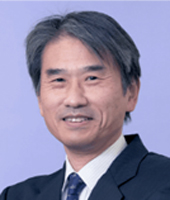 Professor Atsushi Yoshikawa, Japan Kanto Gakuin University, Faculty of Science and Engineering.
Dr. Atsushi Yoshikawa is a professor at the Faculty of Science and Engineering at Kanto Gakuin University in Japan. He holds a Ph.D. in Engineering from Keio University and is actively engaged in interdisciplinary research that integrates information science, psychology, medicine, and education. His research focuses on human-centered AI, including studies on dialogue systems that enhance communication and simulations that address social superstitions and behaviors. He also advocates Engaged Immersive Learning and leads project-based learning initiatives in collaboration with businesses. In this capacity, he has worked with major companies, as well as regional partners, to develop innovative educational programs. He is passionate about fostering an open, interdisciplinary learning environment that encourages critical thinking and problem-solving.
Abstract
Despite various educational innovations, university graduates continue to struggle applying theoretical knowledge to real-world problems. This report describes “Engaged Immersive Learning (EIL),” an educational framework that encompasses existing problem-based learning (PBL) and STEM/STEAM approaches. EIL is characterized by three core elements: (1) Environment-Driven Learning Design—sustained immersion in multi-stakeholder environments naturally evokes autonomous learning, (2) Integration of Generative AI—as a collaborative thinking partner throughout the entire learning process, not merely an auxiliary tool, and (3) Practice-Based Assessment—evaluation using empirical metrics derived from real-world implementation. This framework adopts a loosely coupled design philosophy, enabling universities to function as neutral spaces where students, faculty, industry experts, and government representatives collaboratively tackle genuine societal challenges. Through year-long practice, students transform from passive observers into active problem solvers. Outcomes are evaluated beyond the university organization itself, including peer-reviewed conference presentations, corporate assessments, and evaluations of policy proposals for municipalities. EIL provides an expandable model that bridges the gap between academia and society while cultivating students' complex interdisciplinary problem-solving abilities.
Generative AI (Artificial Intelligence): What Is It? & What Are Its Inter- And Transdisciplinary Applications?” 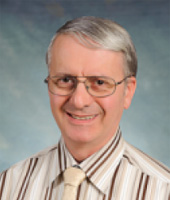 Dr. Richard Segall, USA Arkansas State University, Neil Griffin College of Business, Department of Information Systems & Business Analytics.
Richard S. Segall is Professor of Information Systems & Business Analytics in Neil Griffin College of Business at Arkansas State University in Jonesboro. He holds B.S./M.S. in mathematics, a M.S. in operations research and statistics from Rensselaer Polytechnic Institute in Troy, New York, and a Ph.D. in operations research from University of Massachusetts at Amherst. He has served on the faculty of Texas Tech University, University of Louisville, University of New Hampshire, University of Massachusetts-Lowell, and West Virginia University. His research interests include data mining, big data, text mining, web mining, database management, and mathematical modeling. His funded research includes that by U.S. Air Force, NASA, Arkansas Biosciences Institute (ABI), and Arkansas Science & Technology Authority (ASTA). He was a member of former Arkansas Center for Plant-Powered-Production (P3) and is a member of Center for No-Boundary Thinking (CNBT), serves on the editorial boards of the International Journal of Data Mining, Modelling and Management (IJDMMM), International Journal of Data Science (IJDS), and International Journal of Fog Computing (IJFC), and is co-editor of five books: (1.) Biomedical and Business Applications Using Artificial Neural Networks and Machine Learning, (2.) Open Source Software for Statistical Analysis of Big Data, (3.) Handbook of Big Data Storage and Visualization Techniques, (4.) Research and Applications in Global Supercomputing, and (5.) Visual Analytics of Interactive Technologies: Applications to Data, Text & Web Mining.
Abstract
Generative AI can generate new contents in many types of outputs: images, videos, text or music. ChatGPT is web application that uses Generative AI. Many industries such as financial, health care, manufacturing, and marketing and sales use Generative AI.
This presentation discusses:
(1) Brief history of the development for Large Language Models (LLM), Deep Learning, and Generative AI.
(2) What are multidisciplinary, interdisciplinary and transdisciplinary applications of Artificial Intelligence and other applications for Generative AI such as those for vision, speech, language, decision, Open AI Service.
(3) The concept of Trans-AI/DS as the transformative, transdisciplinary and translational artificial intelligence and data science.
Impact of Artificial Intelligence on Education 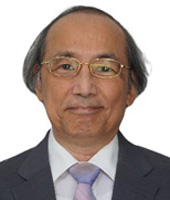 Dr. John Jenq, USA Montclair State University, School of Computing.
Dr. John Jenq is Associate Professor in the School of Computing of Montclair. He received B.Ed. in Science Education from National Changhua University of Education, Taiwan, M.S. and Ph.D. in Computer Science from University of Minnesota, Minneapolis, Minnesota. His research interests are in the area of parallel processing, image processing, neural networks, and intelligent web-based systems.
Dr. Jenq's research focuses on several areas within computer science:
Parallel processing Image processing Neural networks Intelligent web-based systems
Abstract
Artificial intelligence has been a research area within computer science for many decades. Advancements in the 1980s led to successful developments in expert systems, which emulates the decision-making and reasoning abilities of a human expert. One of the earliest well-known examples of chatbots is ELIZA, which was developed at MIT in the late 1960s. Since then, chatbots have evolved greatly and recently gained recognition after ChatGPT became viral in 2022. Nowadays, the availability of large language models and generative AI enables people to easily create their own AI systems in almost any field. In this talk, we would like to discuss the most recent developments in AI technology, and also why and how these developments will greatly impact our education and our society.
Playing by Feel: Engagement, Identity, and Implicit Bias in Overwatch Role Choice  Dr. Cristo Leon, USA New Jersey Institute of Technology, Director of Research, HCSLA, Office of Research & Development.
Dr. Cristo Leon is a Director of Research for the Jordan Hu College of Science and Liberal Arts at the New Jersey Institute of Technology (NJIT). In this capacity, he oversees the management and logistics of research programs, coordinates pre- and post-award activities for over 100 active grants, facilitates the annual submission of more than 200 research proposals, and serves as a liaison between NJIT’s Office of Research, the College Dean, six academic departments, and over 110 faculty Principal Investigators.
Since joining NJIT in 2015, Dr. León has assisted in submitting over 2,000 grant proposals, resulting in more than 400 new awards. His extensive experience includes managing over 83 active grants with a combined projected budget exceeding $33 million for the fiscal year 2025. He has successfully managed complex projects, ensuring compliance, handling subcontract documentation, and fostering collaborative efforts with federal, state, and private entities, particularly for initiatives exceeding $1 million in funding.
Dr. León is deeply committed to promoting Diversity, Equity, and Inclusion (DEI), actively supporting strategic programs that benefit Hispanic and Latinx students in alignment with NJIT's designations as a Hispanic-Serving Institution (HSI) and an Asian American and Native American Pacific Islander-Serving Institution (AANAPISI). As a founding member of NJIT’s Hispanic and Latinx Employee Resource Group (ERG), he advocates for professional development, cultural awareness, networking opportunities, and a supportive community environment. His work advances academic innovation and inclusivity through strategic research initiatives, mentorship, and community engagement, empowering individuals and driving institutional transformation that positively impacts society.
Dr. León earned his Master’s in Business Administration in 2015, graduating Summa Cum Laude, and was subsequently recognized as "Generation Leader EXATEC 2021" by ITESM. In 2024, he completed his Ph.D. in Organizational Management and Institutional Innovation, graduating Magna Cum Laude. Dr. León also received an honorary Doctorate (Doctor Honoris Causa) for pioneering a research initiative that facilitated preserving and translating indigenous texts into Nahuatl, demonstrating visionary leadership, impactful community engagement, and effective collaboration between academia and rural communities. His primary research interests encompass Social Sciences, specifically in Business Development, Cultural and Social Structures, Business Innovation, Digital Marketing, Strategic Planning, Data Management, and Open Science Practices; Other Sciences, particularly in Tabletop Role-playing Games (TTRPGs) and Game Studies; and Education, covering Business and Management, Communication, Humanities, with emphasis on Trans-disciplinary and Interdisciplinary Communication and Research, Educational Innovation, STEM Education, Diversity, Equity, and Inclusion (DEI), and Digital and Hybrid Learning Environments.
 Dr. James Lipuma, USA New Jersey Institute of Technology, Director of the Collaborative for Leadership Education, and Assessment Research.
Dr. James Lipuma is a faculty member in the Humanities Department at the New Jersey Institute of Technology (NJIT) and Director of the Collaborative for Leadership, Education, and Assessment Research (CLEAR).
He holds a B.S. in Chemical Engineering from Stanford University, an M.Ed. in Curriculum and Teaching focusing on Science Education from Teachers College, Columbia University, an M.S. in Environmental Policy Studies, and a Ph.D. in Environmental Science from NJIT. His research extensively covers digital learning, curriculum, and instructional design, and he is currently piloting online converged course delivery methods.
As director, Dr. Lipuma has led curriculum development, assessment design, program evaluation, and program development projects for public schools, universities, the New Jersey Department of Education, the U.S. Department of Education, and the National Science Foundation. He has taught over 5,000 students across over 200 courses during his 25 years at NJIT. He has contributed to nearly $6 million in grant-funded projects, including over $2.5 million as Principal Investigator (PI) or Co-Principal Investigator (Co-PI), and has secured more than $250,000 in donations.
Legally blind since the age of nine, Dr. Lipuma deeply understands the necessity of positive change. He actively promotes broader participation for women and underrepresented minorities in Science, Technology, Engineering, and Mathematics (STEM) through STEMforsuccess.org and other STEM literacy projects he leads.
Abstract
This keynote examines how engrossment, defined as a state of focused attention with embodied arousal, shapes role selection and identity in Overwatch by Blizzard Entertainment. Avatars function as hybrid, cyborg identities that can resist yet also reproduce gender norms. Within the game’s role architecture of Tanks, Supports, and Damage dealers, community judgments frequently diverge by gender. Men who tank are often presumed competent; women who tank encounter sharper criticism for comparable errors and receive less recognition for strong performances. We analyze how play context influences these judgments, since ranked modes prioritize efficiency and team need while casual modes invite visibility at lower stakes. Using a transdisciplinary communication approach, we align concepts from game studies, gender studies, and design to present shared definitions, evidence, and match-level examples. The talk closes with a brief first-person narrative from a female player of a Tank character to illustrate how engrossment links bodily arousal, identity work, and evaluation norms, and it offers practical guidance for educators, designers, and moderators who seek fairer feedback cultures.
Rumpelstiltskin Educators: How to Rectify the Ultimate Burnout  Dr. Kleanthis Kyriakidis, United Arab Emirates American University in the Emirates, Director of Research Conferences and Intellectual Engagement.
Dr. Kleanthis Kyriakidis is a retired Naval Captain Dr. Kleanthis Kyriakidis is the Director of Research Conferences and Intellectual Engagement in the American University in the Emirates (AUE). He holds three Masters’ Degrees: M.S. in Physical Oceanography, M.A. in National Security Affairs (Middle East Studies) with distinction (both from the Naval Postgraduate School) and a Master’s in Public Administration from Harvard Kennedy School, where he was presented with the Lucis Littauer Award for academic excellence. His Ph.D. from the University of the Aegean deals with the rise of Political Islam and provides policy recommendations as how to deal with it. In AUE he has served as the Department Chair of the College of Security and Global Studies, Program Director of the MA in Diplomacy and Chair of the Faculty Senate.
Along with his security expertise, his real passion is curriculum development, student motivation and pedagogy. His other academic interests include diplomacy, security, leadership, globalization, history and International Relations. He has participated in more than 80 International Conferences and published six history and political science books, co-authored another ten and more than 250 articles (13 Scopus-indexed).
Abstract
The number one reason teachers and university professors seek to change their working environment—whether by quitting altogether or moving to another institution—is the persistent challenge of heavy workloads, overwork, and burnout. Educators across all levels report long hours filled not only with teaching but also with administrative tasks, research obligations, and increasing demands for accountability. This often leads to a feeling of being stretched beyond capacity, with little time left for personal well-being, professional growth, or meaningful engagement with students. What compounds this situation is the widespread perception of a lack of appreciation from institutions and, more broadly, from modern societies. Many educators feel that their role, which is central to shaping future generations, is undervalued, underpaid, and insufficiently respected compared to other professions. In this keynote, we will begin by presenting data-informed rankings that highlight the most significant reasons for high turnover ratios in both schools and universities. We will then delve deeper into the continuous overload faced by education professionals, analyzing how structural inefficiencies, unrealistic expectations, and resource shortages exacerbate their stress. This will be followed by a discussion of the societal and institutional factors that perpetuate a lack of respect or recognition for educators. Finally, we will propose concrete measures—ranging from workload redistribution and improved compensation to cultural shifts in valuing education—that can help reverse these troubling trends and foster healthier, more sustainable teaching environments.
The Civic Mission of Universities: Transdisciplinary Communication in Practice 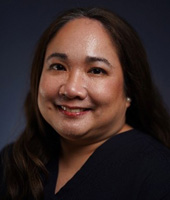 Dr. Genejane M. Adarlo, Philippines Ateneo de Manila University, Health Sciences Program.
Dr. Genejane M. Adarlo is an Associate Professor and the Director of the Health Sciences Program in Ateneo de Manila University. She has completed her Doctor of Medicine at the University of the East Ramon Magsaysay Memorial Medical Center. She obtained her Doctor of Philosophy in Education from the University of Hong Kong. Her research interests include service learning, global citizenship, science education, and well-being.
Dr. Adarlo's research works focus on various scientific contributions, as evidenced by her publications and citations on platforms like ResearchGate, Google Scholar, and SelectedWorks. As a faculty member at Ateneo de Manila University, Dr. Adarlo plays a significant role in academia, contributing to the field of health sciences through her teaching and research activities.
Dr. Genejane M. Adarlo's area of expertise includes service-learning, transformative learning, global citizenship education, science education, health education, and psychological well-being. She has a diverse background in education and health sciences, with a focus on service-learning methodologies and their impact on various aspects of education and community engagement.
Additionally, Dr. Adarlo's research interests extend to topics like comparative education, indigenous people rights, disaster risk management, and Ignatian leadership within the context of service-learning programs. Her academic contributions reflect a strong commitment to exploring the intersection of education, community development, and personal growth through innovative teaching approaches like service learning.
Abstract
The civic mission of universities has gained renewed prominence as higher education institutions confront the imperative of contributing to society. Beyond their traditional functions of teaching and research, universities are increasingly recognized as anchor institutions that generate public value by fostering engaged citizenship and addressing complex societal challenges. This presentation examines the civic mission of universities through two interrelated pathways: service-learning and transdisciplinary communication. Service-learning, defined as the integration of community engagement with academic instruction and critical reflection, strengthens students’ disciplinary learning while cultivating civic-mindedness. In parallel, transdisciplinary communication provides the epistemic and practical framework to address “wicked problems” by integrating diverse academic perspectives with community knowledge in the co-production of solutions. Taken together, these approaches underscore how universities can fulfill their civic mission in ways that are educationally transformative and socially responsive.
The Decline of Deep Thinking: Is Technology Stealing Our Minds?  Dr. Risa Blair, USA Purdue University Global, Department of Humanities and Social Sciences, School of General Education / University of Arkansas Grantham, Academic Manager of Instructional Design / Post University, School of Arts & Sciences.
Dr. Risa Blair has over 25 years in higher education, leadership, technology, and instructional design. She is a dynamic and passionate leader with a wealth of experience in business and higher education. She has a proven track record of success in leading global teams and developing engaging learning experiences for students of all ages. As a curriculum developer, educator, and global professor/trainer, Dr. Blair has dedicated herself to fostering relationships with colleagues and students around the world.
With a diverse educational background including a doctorate in Instructional Technology and Distance Education, as well as masters degrees in both Cybersecurity Management and Organizational Behavior, Dr. Blair brings a unique and comprehensive skill set to her work. She is also a competent job counselor, career consultant, and resume writer, helping individuals navigate their career paths with confidence and success.
In her current role as Academic Manager of Instructional Design at the University of Arkansas Grantham, she leads instructional design and curriculum development, ensuring academic quality and faculty support. Dr. Blair thrives on speaking and presenting with a long list of presentations and publications on topics ranging from online education to cybersecurity and beyond.
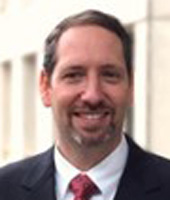 Professor Matthew Schigur, USA University of Arkansas Grantham, Director of the College of Business, Management and Economics, and the MS Leadership program.
Professor Matthew Schigur, PMP, MPM, MISM, MBA, has 24 years of experience in higher education, holding positions in academics and academic administration. Some of the positions he has held are Associate Professor, Assistant Professor, Visiting Professor, adjunct instructor, Chair, Faculty Chair – School of Business, Academic Affairs Specialists, Interim Campus Director, Associate Dean – College of Business, Management, and Economics, and most recently Director of the College of Business, Management, and Economics. Matthew is completing his Doctorate in Management and Marketing. Matthew also holds master’s degrees in business administration, project management, and information systems management. Additionally, he is a certified project management professional, academic coach, and advanced tutor. Matthew also has over 37 years of experience in consulting and marketing and digital marketing, entrepreneurship in business development, strategic management, information technology, business analytics, artificial intelligence, and project management for for-profit and non-profit clients.
Abstract
The process of writing a research paper once demanded dedication, patience, and deep engagement. Choosing a topic required extended reflection and consultation. Research unfolded in libraries, with endless shelves and intricate card catalogs. Navigating these resources, finding both secondary and primary sources, sometimes on painstaking microfiche machines, was slow but formative, teaching patience, detail orientation, and perseverance.
Drafting involved creating detailed outlines and revising multiple drafts on typewriters, a process that fostered clarity, organization, and deep analytical thinking. Mistakes were costly, requiring careful revision. This deliberate, hands-on approach was not just about gathering information but about developing the ability to synthesize ideas, build arguments, and communicate complex thoughts clearly.
Today, this immersive process has been replaced by the digital immediacy of the internet and AI tools. Research once measured in hours at the library can now be done in seconds from anywhere. The steps of deep inquiry, analyzing, questioning, and reflecting critically on sources, are frequently bypassed in favor of summarizing and assembling easily accessible snippets. Drafting, outlining, and revision, formerly labors of intellectual development, are compressed or omitted altogether as AI can generate coherent drafts with a few prompts.
This shift raises profound concerns: Has the pursuit of efficiency and ease come at the cost of genuine critical thinking? Just as cursive writing, once essential, has faded from daily life, so too may the skills of evaluation, questioning, and developing original insights risk becoming obsolete if not actively preserved. The temptation to equate accessible information with deep understanding endangers the essence of education.
Ultimately, whether critical thinking disappears or simply lies dormant depends on educational priorities. If speed and convenience eclipse reflection and analysis, true learning may be lost. The value of a college degree, once signified by hard-earned analytical skill, risks being hollowed out if technology does the intellectual work. We may conclude with a pressing challenge: Technology should remain an aid and support, not a substitute, for authentic, rigorous engagement with knowledge. If we fail to honor this distinction, the core of education, the deep thinking, and the comprehensive understanding it fosters, may vanish, like cursive writing, from our collective skillset.
Transdisciplinary Supersymmetry: Generative AI in the Vector Space of Postdigital Humanism  Professor Rusudan Makhachashvili, Ukraine Borys Grinchenko Kyiv University, Head of Germanic Philology Department.
Professor Rusudan Makhachashvili is Doctor Habilitated, English and Spanish major, Head of Germanic Philology Department of Borys Grinchenko Kiyv University, Ukraine. Expert of individual grant projects evaluation for the European Commission Horizon 2020 and Horizon Europe Frameworks (MSCA Individual and Global Fellowships). Head of observer institution group for the Horizon 2020 project ELEXIS (European Lexicographic Infrastructure). Expert staff member of the 7th Framework of the European Commission Project IRNet (International Research Network for study and development of new tools and methods for advanced pedagogical science in the field of ICT instruments, e-learning and intercultural competences). Expert staff member of the International Study of Leadership Development in Higher Education (Calgary, Canada). Member of Advisory group of Oxford English Dictionary. Advisor for Ukrainian universities on the development of curricula for master's degree in e-government - Program by Estonian Foreign Ministry & Tallinn University of Technology (Estonia), 2020. Expert of the Ministry of Education of Ukraine for e-learning platforms development (National School Online project). For 7 years, Rusudan Makhachashvili had served as a Vice-Dean for Research, before moving onto a position of the Head of Young Researchers Council to advance policy on interdisciplinary and cross-sectorial inquiry and best academic practices. Rusudan Makhachashvili was awarded the Ministry of Education Scholarship for outstanding research achievement.
Prof. Rusudan Makhachashvili is an academic supervisor of 15 successfully completed Ph.D. theses on innovative social trends in digital communication and linguistic development in digital media. Editor in Chief of the Journal Synopsis: Text. Context. Media. Member of the Editorial boards of such journals as Open Educational E-environment of Modern University, International Journal of Research in E-learning, International Journal of Linguistics, Literature and Culture, Turkish Online Journal of Qualitative Inquiry.
Main academic interests include but are not limited to: interdisciplinary studies in Liberal Arts, digital education, digital humanities, e-society and e-governance, digital literacy development, cognitive and communicative linguistics, sociolinguistics.
Professor Rusudan Makhachashvili is the author of 17 books and over 200 published academic articles on a wide range of transdisciplinary topics covering the scope of research interests. Exemplary published works: Linguophilosophiс Parameters of English Innovations in Technosphere (UK, 2015), Models and Digital Diagnostics Tools for the Innovative Polylingual Logosphere of Computer Being Dynamics (Peter Lang, Berlin, 2020), ICT Tools and Practices for Final Qualification Assessment in the Framework of COVID-19 Lockdown (Poland, 2020), Digital Terraformation: Cyberspace Ontology, Anthropology, and Gnosis (Italy, 2021), Covid-19 context for meta assessment of digital learning on European and Oriental languages programs (USA, 2021), Linguistic Philosophy of Cyberspace (JSCI, USA, 2021).
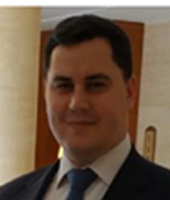 Professor Ivan Semenist, Ukraine Borys Grinchenko Kyiv University, Dean of Oriental Languages Faculty.
Professor Ivan Semenist, Ph.D., is Dean of Oriental Languages Faculty, Director of Confucius Class and Associate Professor at Borys Grinchenko Kiyv University, Ukraine. Chairman of the Board of the Chinese Language Teachers Association of Ukraine, Editor in Chief of Ukrainian Journal of Sinology Studies. Former Adviser to the Chairman of the Committee on State Building and Local Self-Government of the Supreme Council of Ukraine and CEO Services of Innovative Consulting Company L.L.C. (SIC Company).
He holds a M.A. with honors in World History from the Taras Shevchenko National University of Kyiv, Ukraine (2009). He received his Ph.D. in World History from the Taras Shevchenko National University of Kyiv, Ukraine (2013). Since 2015, have been working at the Borys Grinchenko Kyiv University of Kyiv. He is the author of more than 10 transdisciplinary B.A. and M.A. courses at the Borys Grinchenko Kyiv University. He regularly supports students as supervisor of B.A, M.A. theses. Ivan Semenist was awarded the Kyiv Mayor's Prize for special achievements in academia, the First prize of the Ambassador Extraordinary and Plenipotentiary of the People's Republic of China to Ukraine and the Medal of Borys Grinchenko for outstanding achievement.
Professor Ivan Semenist Initiated Establishment of the first Center for China Studies in Ukraine and equipment of the cutting-edge e-leaning center for Oriental languages studies, initiated and organized a number of international scientific conferences, round tables, and seminars (in Cooperation with CASS): the International Round Table "Transformational Processes in Modern Society: Ukrainian-Chinese Context", International Scientific Conferences "Confucius School: Sources-History-Present", All-Ukrainian Seminar for Chinese Language Teachers, International Scientific Conference to the 5th Anniversary of the "Belt and Road Initiative".
Main academic interests include but are not limited to: oriental studies, interdisciplinary studies in Liberal Arts, oriental languages, cultural and linguistic-literary ties of Europe with the countries of the East, American studies, relations of Ukraine with the countries of the East.
Professor Ivan Semenist is author of 5 books and around a 100 published academic articles on a wide range of transdisciplinary topics covering the scope of research interests. Exemplary published works: Modern Chinese Society -New Perspectives: New research between China and Ukraine scientists (Social Sciences Academic Press, China 2017), Japan's New Role In The World: The Discussion Of Early 1990's (Ukraine 2016), ICT Tools and Practices for Final Qualification Assessment in the Framework of COVID-19 Lockdown (Poland, 2020), Covid-19 context for meta assessment of digital learning on European and Oriental languages programs (USA, 2021), Interdisciplinarity and Skills Development in Final Qualification Assessment: Survey Study for European and Oriental Languages Programs (JSCI, USA, 2021).
Abstract
In the age of generative AI, transdisciplinary communication is undergoing a profound transformation. Technologies such as natural language processing and content generation are not merely tools, they are catalysts for reimagining cognition, interaction, and knowledge production. This study explores how generative AI fosters transdigital communication, enabling fluid integration across diverse domains and modalities in the metacoding of vector space. Framed through the development of cognitive AI, we examine the emergence of postdisciplinarity and digital humanism as a communicative supersymmetric system, where disciplinary boundaries dissolve and machine intelligence becomes a co-creator of meaning.
Drawing on quantum symmetry and supersymmetry as conceptual models, we propose a framework for understanding AI-enhanced communication as a dynamic vector space where information, knowledge, education, and meta-communication converge. Cognitive AI, with its capacity to simulate human reasoning and adapt to complex data input, further amplifies this shift, supporting collaborative epistemologies that transcend human exclusivity.
We argue that post-humanism in education is no longer speculative, but is operational. As AI reshapes learning environments, it challenges traditional hierarchies and demands new governance models that ensure transdisciplinary, scalable, and inclusive knowledge systems. This inquiry advocates for a transformative rethinking of digital education, where transdisciplinarity, transhuman agency, and generative intelligence convene to redefine the future of learning.
Transformer-Based vs. Traditional Machine Learning Models to Detect AI-Generated Text
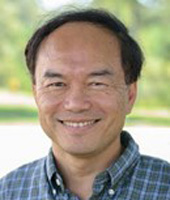 Dr. Li-Jing Arthur Chang, USA Jackson State University, Graduate Program Director.
Dr. Chang is an Assistant Professor at the Department of Journalism and Media Studies at Jackson State University, teaching graduate theory and research courses and supervising projects and theses. His research explores the intersection of data science and journalism, focusing on automatic media content analysis with supervised machine learning and media topic exploration using unsupervised machine learning. His publications include work on fake news detection, the classification of Asian values through supervised learning, and frame discovery in COVID-19 tweets using Latent Dirichlet Allocation (LDA).
Dr. Chang holds a Ph.D. in Data Science from Jackson State University, a Ph.D. in Journalism from the University of Texas at Austin, and an M.A. in Journalism from the Missouri School of Journalism at the University of Missouri-Columbia. He currently serves as Graduate Program Director at the Department of Journalism and Media Studies at Jackson State University.
Abstract
This study compares two transformer-based deep learning algorithms with four traditional machine learning counterparts in detecting AI-generated text. As AI text detection requires the capacity to spot nuances and contextual information, transformer-based algorithms have the advantage over conventional machine learning algorithms, which do not consider contextual details. Findings from the study showed strong support for this assumption. In terms of detection accuracy, the transformer-based models like XLNet and DistilBERT had detection accuracy rates of 0.942 and 0.930, respectively, compared to the numbers for their traditional machine learning counterparts like Lasso Classifier (0.883), Ridge Classifier (0.880), LightGBM (0.862), and AdaBoost (0.806).
Why Is Transdisciplinarity So Difficult? 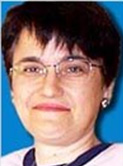 Dr. Ekaterini Nikolarea, Greece University of the Aegean, School of Social Sciences.
Dr. Ekaterini Nikolarea got her B.A. in English Studies from Greece, her M.A. in Comparative Literature from Carleton University, Canada, and Ph.D. in Comparative Literature (with specialization in Translation and Theater Studies) from the University of Alberta, Canada. She was awarded major Canadian Fellowships, Prizes and a Post-Doctoral Fellowship for her contribution to Translation Studies. Ekaterini taught World Literature, English and Greek (Koine Dialect and Modern Greek) in Canadian and US Universities, while being in North America.
Since she came back to Greece, Ekaterini has been teaching ESP (: English for Specific Purposes) and EAP (: English for Academic Purposes) in the Departments of: Geography, Social Anthropology and History, Cultural Technology and Communication and Sociology (School of Social Studies) at the University of the Aegean, Lesvos, Greece.
Nikolarea has published articles on theatre translation, reviewed books and articles and authored two Studies Programs for Applied Linguistics. She has also published a lot of articles on ESP and EAP teaching at non-English Universities and has coined two neologisms – inter-scientificity and reverse inter-scientificity. Her main interest has been focused on how human brain and mind (nous in Greek) function in bi-multilingual environments, especially in international conferences (like IIIS) where English is used as lingua franca, that is, as a means of international language for communication.
In her spare time, Ekaterini (1) does research on: (a) teaching English at a university level; (b) perception and reception of ancient Greek tragedy by a wider English public through translations and theatrical performances; and (2) works as a freelance bi-directional translator and interpreter, when her services are required.
Abstract
If transdisciplinarity goes beyond the boundaries of various scientific fields (i.e. of interdisciplinarity) by various stakeholders, such as practitioners, citizens, policymakers, and businesses, in the knowledge production process, why does it seem so difficult in practice?
Why do very good theoretical models of transdisciplinarity fail both in creating integrative solutions that are scientifically sound and relevant to real-world problems and in fostering societal innovation and learning?
This presentation will try to answer this sequence of questions by examining which inherent problems in academia and various societies operate as stumbling blocks.
On the one hand, in academia, there is the bias that expressing difficult issues in an understandable language is something that is neither scientific nor profitable; it is rather time-consuming and very insecure in social practice. There is also the academic attitude that “what is said is the ‘absolute’ truth of the matter” [a snobbish attitude/hubris]; a variety of examples will be provided.
On the other hand, the wider society is very hesitant when encountering a “pure” academic discourse (which is not understandable) and sense that they are looked down upon by the academics.
Finally, the presenter will discuss how these stumbling blocks can be removed, a fact that takes time and effort from both sides.
|

